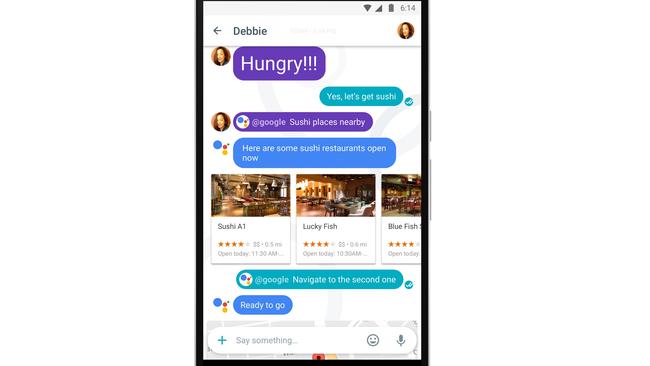Smartphones adding artificial intelligence to prevent crime and predict heart attacks
ARTIFICIAL intelligence is getting so advanced it could potentially save us from heart attacks before we’re having them.
EXCLUSIVE
“YOU’LL be sitting at your desk one day and an ambulance will come and take to the hospital because you’re about to have a heart attack. The ambulance will just arrive.”
This is the extreme scenario Telstra chief scientist Dr Hugh Bradlow foresees as a result of artificial intelligence increasingly added to our gadgets, from smartphones and wearable technology, to connected appliances and Fitbits.
GOOGLE TRICKS: 13 hidden features inside Google’s Pixel smartphone
PIXEL PERFECT: Can Google’s first phone beat Samsung and Apple?
The programming, he says, could be used to do everything from predicting and preventing crime, to picking restaurants and ensuring travellers don’t find themselves homeless.
And the pace of AI innovation is accelerating, with Google emerging as a major advocate of smarter technology.

Dr Bradlow says the heart-saving scenario above will be possible as long as you feed the right information to the right computer.
“You could be wearing a Band-Aid that measures your heart rate and that information is transmitted to a data centre running an algorithm looking for anomalies,” he explains.
This artificial intelligence could be used to prevent crime too, though in a way divorced from Minority Report.
The Stanford University study Artificial Intelligence and Life in 2030found “predictive policing,” or using computers to analyse crime information, could “significantly” enhance the police force’s ability to predict where crimes would happen and “actually remove or reduce human bias”.
The technology is already being used in American cities including New York City and Washington DC, but Dr Bradlow says it could also play a part in smartphones.
“Just say I want to go to a restaurant that’s safe for me to walk to,” he says.
“If I ask my phone, it might not make the most obvious choice, but it might say this is the safest restaurant and I’ll make a booking.
“It’s got your preferences, data from public sources like weather and traffic, and then data from organisational sources like crime data. It just aggregates them all.”
While artificial intelligence has been used in small but convenient ways to date, Google is now throwing its weight behind making the technology mainstream.
The internet giant recently launched its first phone with AI program Google Assistant built in, and users can ask the Pixel smartphone to translate foreign words, announce sports results, show their appointments, or find nearby Japanese restaurants.
Dr Bradlow says the way Google Assistant is “baked into the operating system” will allow app developers to easily add information, making it smarter and more capable.
If your plane is delayed and your hotel had been reserved through an app, for example, AI agents like Google Assistant or Apple’s Siri could contact the company and pass on up-to-date arrival information.
While Dr Bradlow admits most people will just use these services to find and book restaurants and movies initially, they could eventually link up with internet-connected appliances, like air conditioners and lighting, to create a smart home that predicts your needs.
“I envisage a world in which you say, ‘Goodnight house,’ and the house locks the doors or opens the cat flap, and does all of those things for you in one connected sweep,” he says.
Originally published as Smartphones adding artificial intelligence to prevent crime and predict heart attacks


